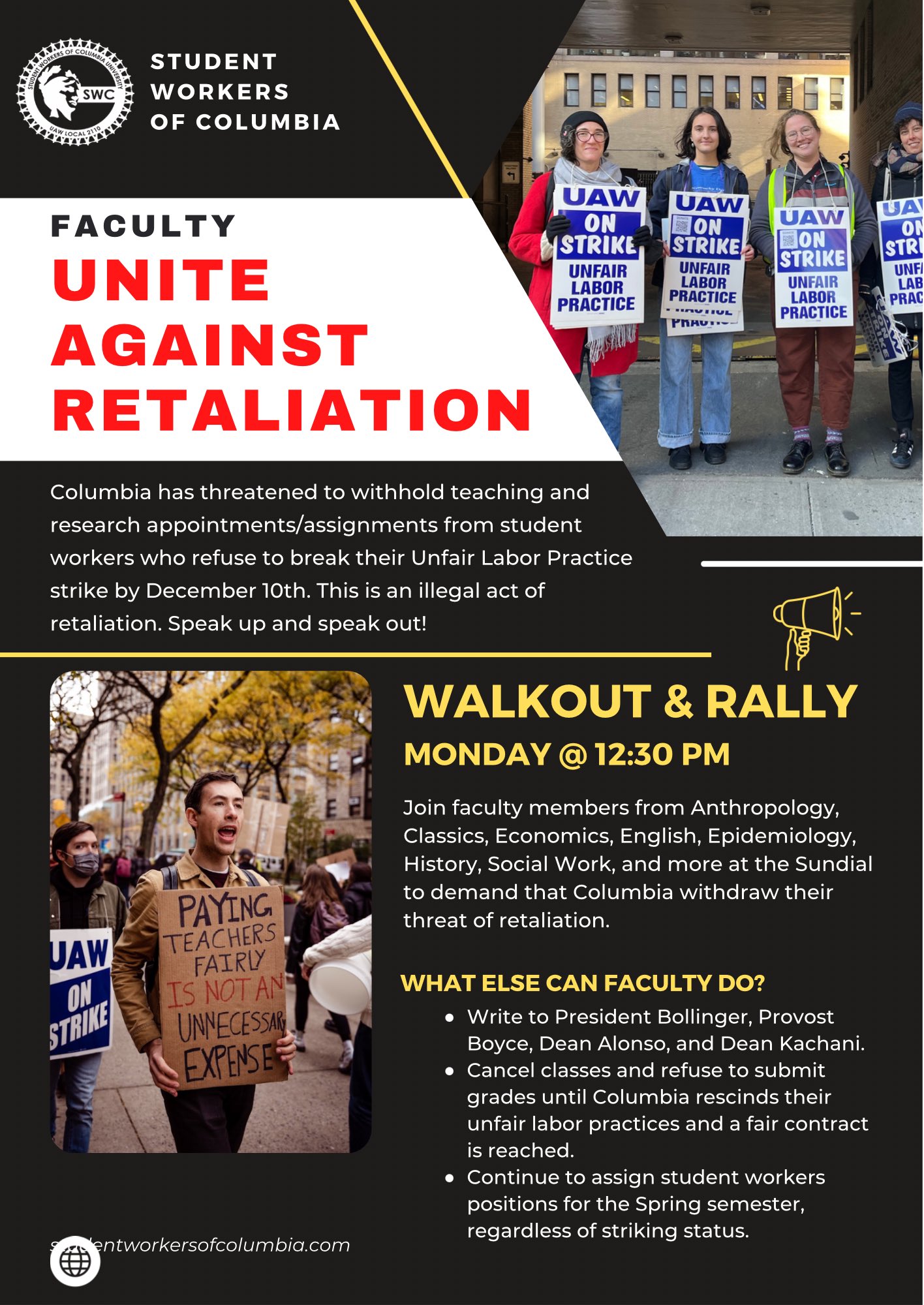When Universities Fail to Address Harassment Complaints: Solidarity with Margaret Czerwienski, Lilia Kilburn, and Amulya Mandava v. Harvard
AAUP–Penn stands with the many graduate student workers at Harvard who walked out of classes on February 14th in solidarity with their colleagues Margaret G. Czerwienski, Lilia M. Kilburn, and Amulya Mandava, whose harassment complaints against Professor John L. Comaroff are now the subject of a lawsuit against Harvard. The details of the case are outrageous; you can read the full text of the lawsuit here. Not least stunning is the disclosure that Harvard allegedly obtained confidential records from the private therapist of one of the complainants and gave this private mental health information to her harasser. The failures of the Title IX system are evident in that office’s apparent complicity in Harvard’s mishandling of complaints. This is why HGSU-UAW has called for neutral, third-party arbitration in cases of harassment and discrimination at Harvard—a key provision that SWC successfully won in their recent first contract with Columbia.
The circling of wagons around Comaroff by 38 prominent senior faculty who signed an ill-informed letter in his defense was deeply disheartening. We take more encouragement from the thousands of people at Harvard and elsewhere who signed this letter denouncing it and supporting the complainants, and from this earlier statement signed by over 100 Harvard faculty in solidarity with grads (in November 2021, prior to the current suit) supporting HGSU’s demand for real recourse. This case bears out the need for it, and the student editors of the Harvard Crimson make the same argument in this editorial.
These issues are pervasive, often entrenched in status hierarchies that make graduate students vulnerable—especially in cases of harassment by an advisor on whom their careers may depend and about whom they cannot complain without serious professional and personal consequences. Gendered and racial inequity and power imbalances exacerbate these problems for grads and, indeed, for faculty on and off the tenure track as well. In the politicized climate of the past six years, threats against the academic freedom of women and LGBTQIA faculty, and faculty of color, often take the form of sexual harassment. Graduate students and student workers, faculty, and staff at Penn are justifiably concerned about how our own University handles cases of workplace harassment, sexual and otherwise. An op-ed from last spring by Penn students on national Title IX review and the need for Penn to take more active steps to prevent sexual assault and harassment attests that this concern is longstanding. Anecdotally, too many of us know of complaints of discrimination and workplace harassment that have been swept under the rug. An overreliance on the often dysfunctional Title IX apparatus is part of the problem. We need assurance from the Penn administration that the University is committed both to preventing harassment, assault, and discrimination in the first place and to pursuing complaints in a serious and impartial manner.


